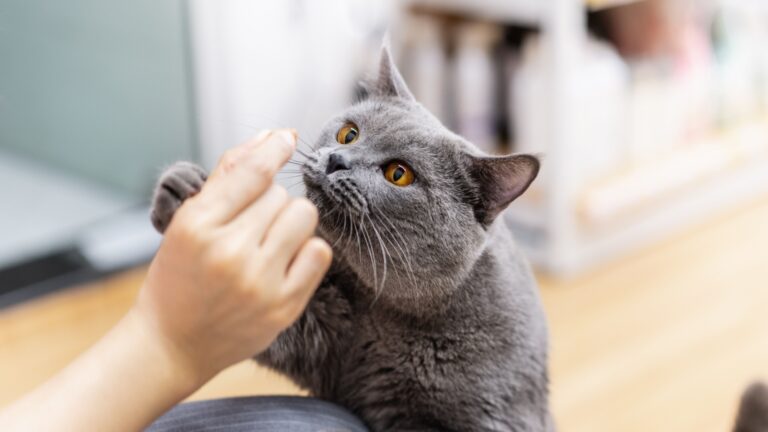11 Easy Ways To Soothe Your Cat’s Anxiety
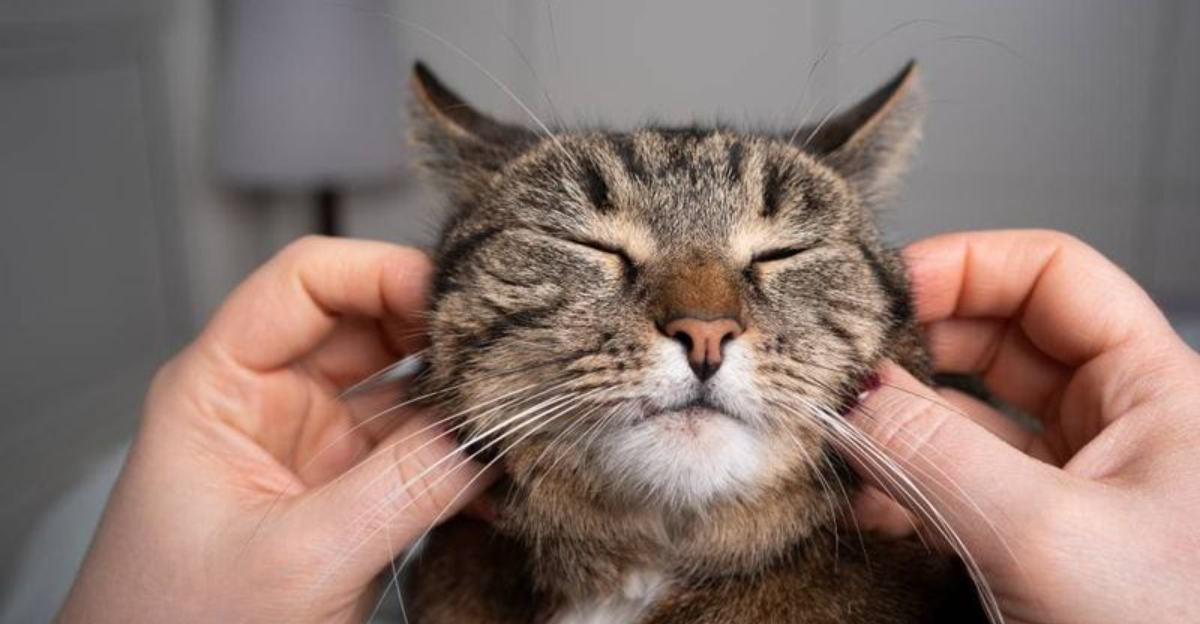
Cats may seem independent, but they can experience anxiety just like us. Whether it’s thunderstorms, new environments, or changes in routine, our feline friends sometimes need extra comfort.
Helping your anxious cat feel secure not only improves their quality of life but strengthens your bond with them too.
1. Create A Safe Space
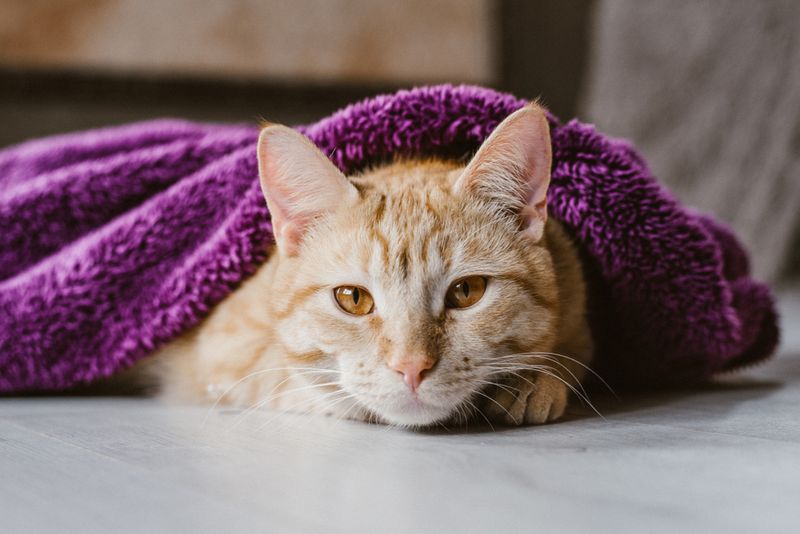
Ever noticed your cat hiding under the bed during storms? Cats need their own sanctuary when stress hits. A quiet corner with their favorite blanket or a covered cat bed can work wonders.
This retreat gives them control over their environment when feeling overwhelmed. Think of it as their personal stress-free zone!
2. Use Calming Pheromones
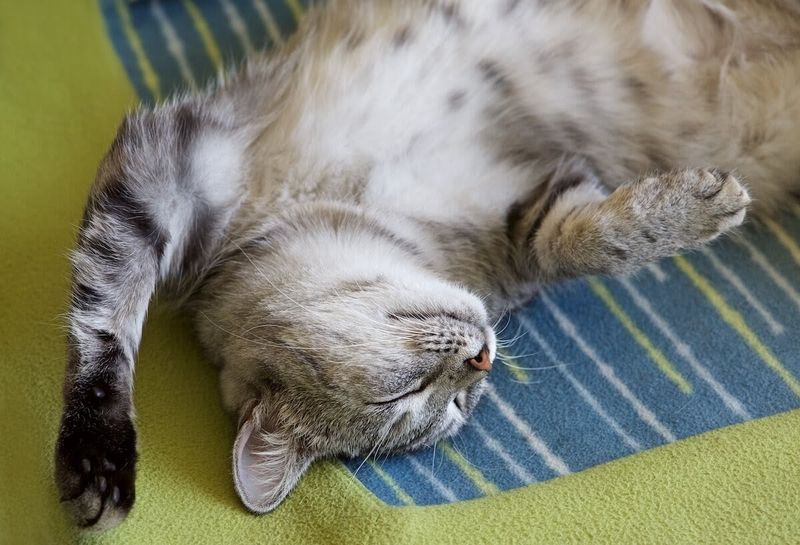
Pheromone products mimic the natural chemicals cats release when they feel content. Available as plug-in diffusers, sprays, or collars, these synthetic versions signal safety to your cat’s brain.
Many cat parents report seeing dramatic improvements within days. The familiar scent helps cats feel like they’re in their own territory.
3. Maintain A Consistent Routine
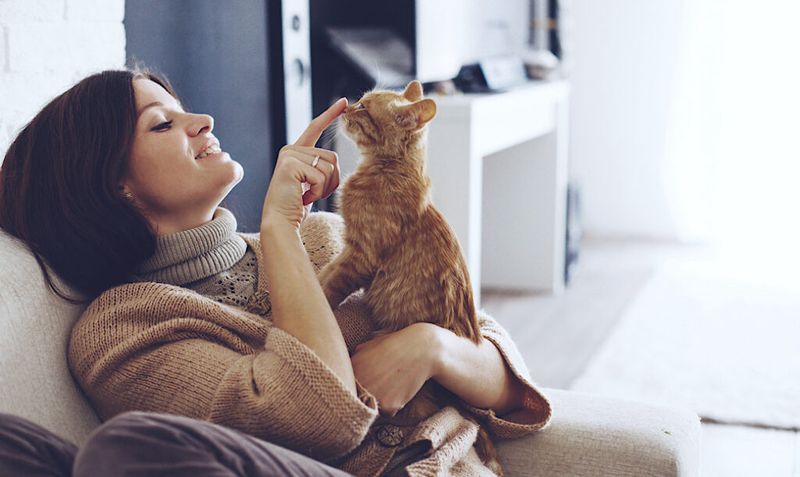
Surprise schedule changes can throw your cat into a tailspin! Cats are creatures of habit who thrive when they know what to expect. Feed, play, and clean their litter box at the same times daily.
Your predictable schedule becomes their security blanket. Even small changes can be introduced gradually to minimize stress.
4. Offer Interactive Playtime
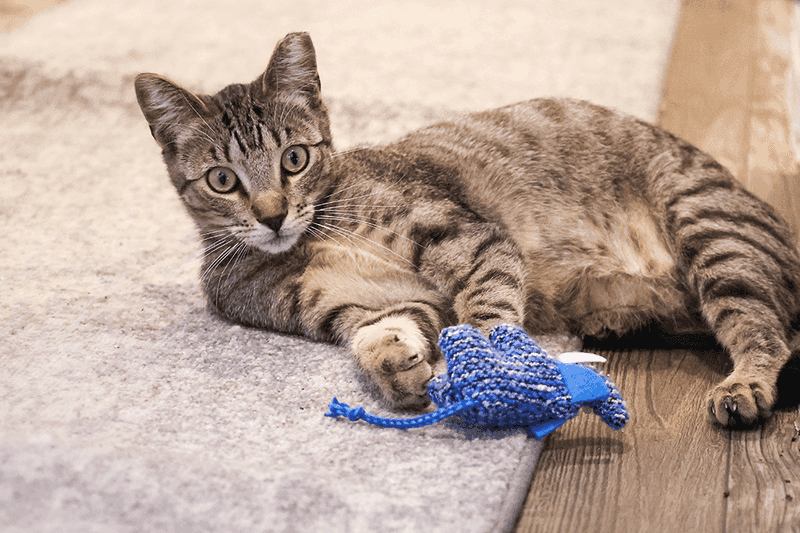
Nothing burns anxiety like a good play session! Feather wands, laser pointers, or crinkly toys can transform your cat’s mood in minutes. The physical activity releases pent-up energy and stress.
Bonus: playing together strengthens your bond. Even just 10-15 minutes twice daily can make a remarkable difference in your cat’s anxiety levels.
5. Provide Hiding Spots
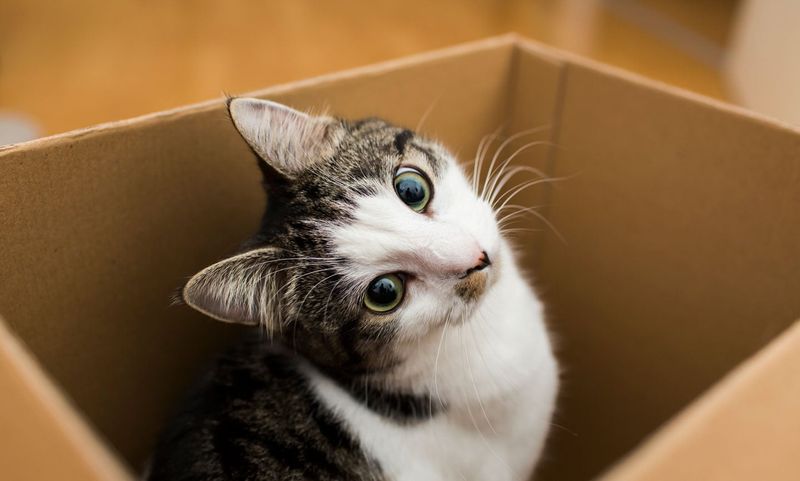
For cats, invisibility equals safety. When threatened, their first instinct is to vanish! Empty boxes, cat tunnels, or under-furniture spaces make perfect hideaways.
These secret spots allow your cat to observe their surroundings while feeling protected. Unlike punishment, hiding is a healthy coping mechanism that helps cats process stress at their own pace.
6. Gentle Petting Or Massage
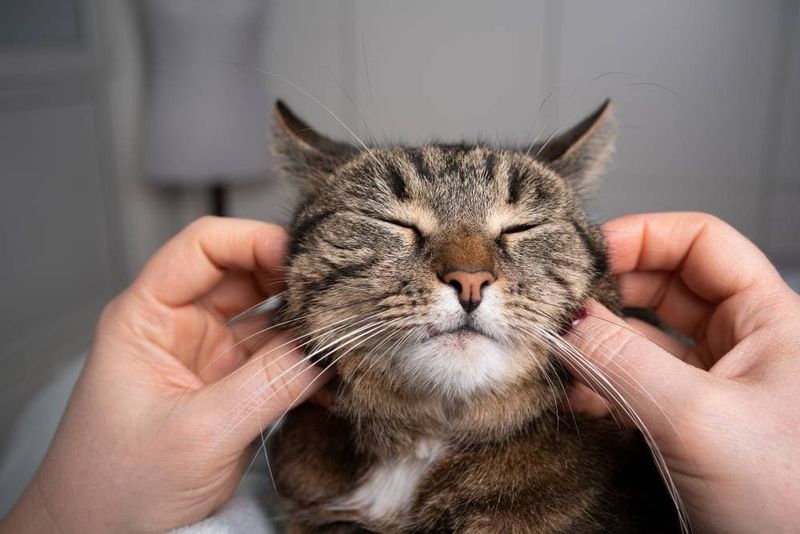
Those slow blinks during petting sessions? That’s your cat’s way of saying they feel safe with you. Many cats melt under gentle strokes along their cheeks, chin, and between their ears.
This physical connection releases feel-good hormones for both of you! Watch your cat’s body language to know when they’ve had enough touch.
7. Use Music Or White Noise

Sound therapy isn’t just for humans! Specially composed cat music with feline-friendly frequencies can soothe frazzled nerves. Some cats also respond well to nature sounds or gentle white noise.
These calming soundscapes mask startling noises that might trigger anxiety. Many pet parents leave music playing when they’re away from home.
8. Aromatherapy For Cats
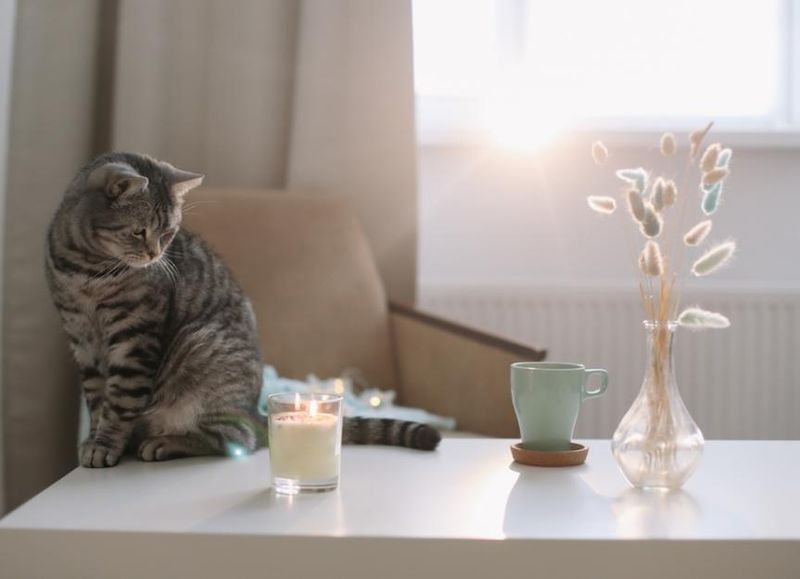
Certain scents can work magic on feline stress levels! Lavender and chamomile, when properly diluted and cat-safe, have natural calming properties. Never apply oils directly to your cat!
Instead, use pet-specific products or place a drop on their bedding. Always provide an escape route so they can move away if the scent is too strong.
9. Regular Grooming Sessions
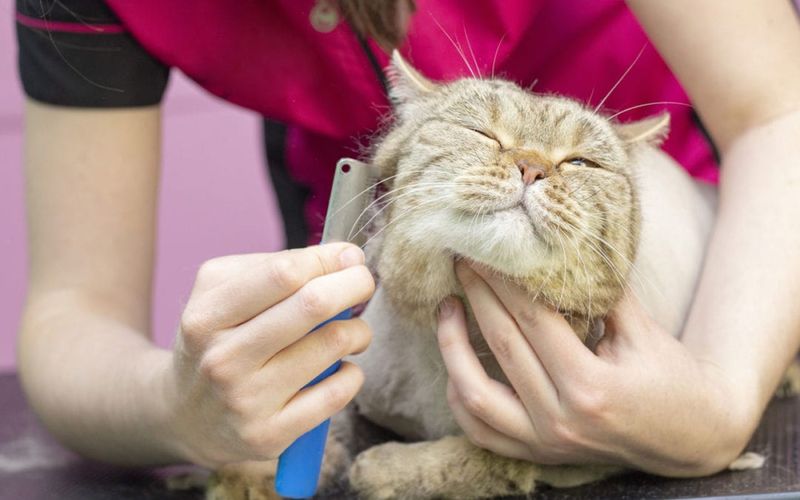
Brushing does more than prevent hairballs – it’s a bonding ritual that can lower stress hormones! Many cats associate gentle grooming with maternal care and security.
Start with short sessions and watch for signs of enjoyment like purring or kneading. The rhythmic strokes can become a comforting ritual that both of you look forward to.
10. Provide Vertical Spaces
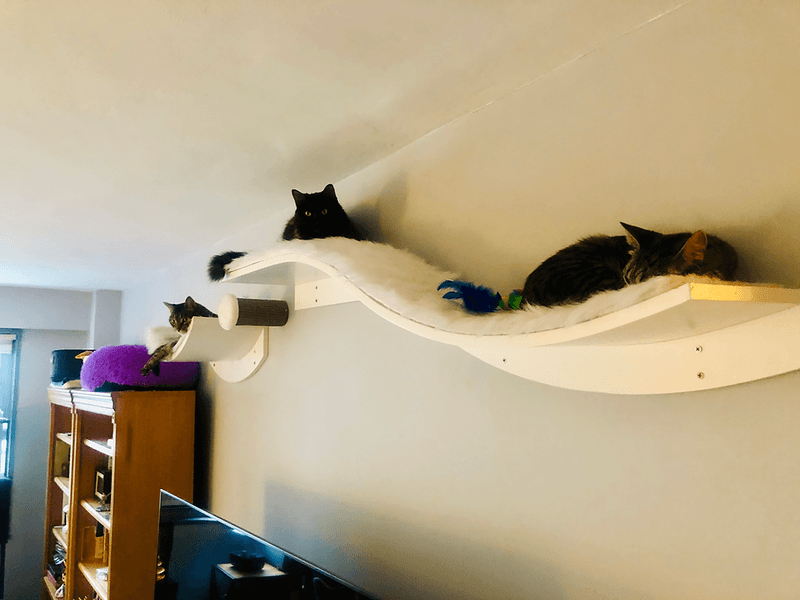
Heights give cats a strategic advantage! From elevated perches, they can survey their domain while feeling safe from potential threats. Cat trees, shelves, or window perches satisfy this natural instinct.
The ability to climb and observe reduces vulnerability. For multi-cat households, vertical options also help reduce territorial tensions by creating more usable space.
11. Consult Your Veterinarian
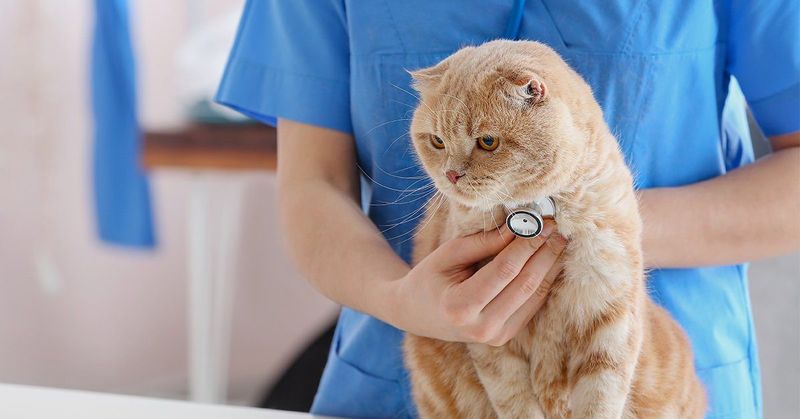
Sometimes anxiety stems from hidden medical issues that only professionals can identify. Your vet can rule out pain or illness that might be causing your cat’s distress.
For severe cases, they might recommend behavior modification plans or even medication. Don’t wait until anxiety becomes extreme – early intervention leads to better outcomes!

